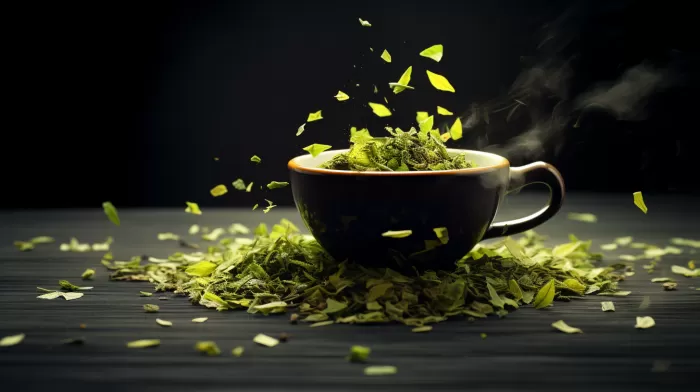Tea is a powerful beverage that has been enjoyed for thousands of years. From black and green tea to herbal infusions, these drinks hold an array of health benefits that extend far beyond providing a cozy and heartwarming experience. Herbal teas are especially healthier than most other caffeinated beverages, providing weight loss assistance, an energy boost, mood improvement, better quality sleep, and even relief from the common cold.
Black and green teas, the most widely-consumed teas globally, originate from the Camellia sinensis shrub. Other teas like oolong and white tea also stem from this plant but have different processing methods. Black tea is the most oxidized type of tea, maintaining its strong, robust flavor for years. This longevity has even led to the compression of black tea into bricks, which were once used as currency in areas like Mongolia, Tibet, and Siberia.
Research has long highlighted the health benefits of black and green teas. A 2001 study from Boston University found that black tea consumption could reverse vascular dysfunction, protecting the heart and reducing the risk of heart attacks. More recent studies have shown that black tea can improve blood flow and decrease arterial stiffness, further supporting its cardiovascular benefits.
One key compound found in black tea is Theaflavin-3-gallate, which has been reported to improve cholesterol metabolism, aiding in lower systolic and diastolic blood pressures. Black and green teas also contain L-theanine, which helps to produce nitric oxide in endothelial cells. Nitric oxide is a well-known vasodilator that promotes blood flow, leading to better cardiovascular health and improved skeletal muscle strength. Additionally, L-theanine can reduce mental and physical stress, benefiting those with adrenal fatigue. Plus, it’s known to improve mental clarity and mood, especially when combined with caffeine.
Despite its benefits, excessive caffeine consumption can lead to physical dependency. Although black tea does contain caffeine, its content is significantly lower than that of a typical cup of coffee. This balance can be beneficial for those who need a caffeine boost without overloading on too much.
Tea consumption may also help with weight loss and management. A 2010 European Journal of Nutrition report examining body weight and tea consumption among thousands of participants showed that drinking hot tea was inversely associated with obesity and had a positive effect on biomarkers of cardiovascular disease risk. Similarly, a 2011 Japanese study found that black tea consumption significantly reduced the risk of obesity and helped prevent metabolic syndrome.
Another advantage of tea is its regulation of blood sugar. Chinese researchers discovered that black tea was the most effective among green, oolong, and black teas in slowing blood sugar absorption and fighting free radicals. Green tea has similar benefits to black tea, such as promoting heart health and reducing the risk of diabetes. Moreover, green tea has high concentrations of compounds like epigallocatechin-3-gallate (EGCG), which can lower obesity and prevent metabolic syndrome.
Green tea has also been linked to cancer prevention properties. Studies show that the compounds in green tea can attach to and destroy cancer cells while also preventing the formation of cancer in various organs. Other research illustrates that green tea may prevent the spread of breast and prostate cancers in humans.
With its numerous health benefits and flavors, tea is undoubtedly an advantageous choice. So, the next time you enjoy a cup of tea, sit back, relax, and appreciate the incredible properties that each sip has to offer.



